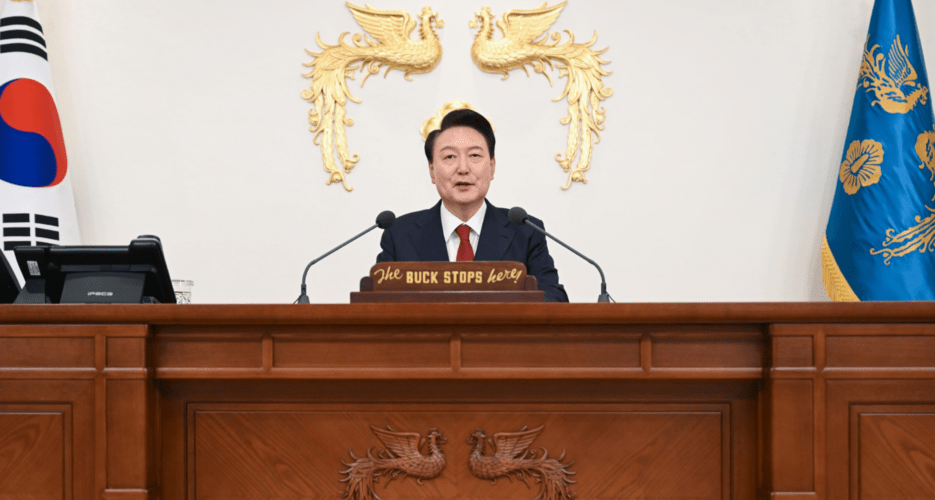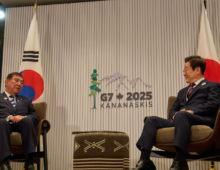South Korean president softens approach but maintains position on domestic and foreign policy matters
South Korean President Yoon Suk-yeol’s first formal press conference in nearly two years aimed to reshape his administration’s public image and address key issues but delivered mixed results. While Yoon struck a more apologetic and communicative tone following his party’s recent election loss, his positions on major controversies remained largely unchanged.
For instance, Yoon’s stance on domestic issues, such as investigations into a marine’s death and the various scandals involving the first lady, stayed consistent with only slight modifications in tone.
South Korean President Yoon Suk-yeol’s first formal press conference in nearly two years aimed to reshape his administration’s public image and address key issues but delivered mixed results. While Yoon struck a more apologetic and communicative tone following his party’s recent election loss, his positions on major controversies remained largely unchanged.
For instance, Yoon’s stance on domestic issues, such as investigations into a marine’s death and the various scandals involving the first lady, stayed consistent with only slight modifications in tone.
Get your
KoreaPro
subscription today!
Unlock article access by becoming a KOREA PRO member today!
Unlock your access
to all our features.
Standard Annual plan includes:
-
Receive full archive access, full suite of newsletter products
-
Month in Review via email and the KOREA PRO website
-
Exclusive invites and priority access to member events
-
One year of access to NK News and NK News podcast
There are three plans available:
Lite, Standard and
Premium.
Explore which would be
the best one for you.
Explore membership options
© Korea Risk Group. All rights reserved.
No part of this content may be reproduced, distributed, or used for
commercial purposes without prior written permission from Korea Risk
Group.












